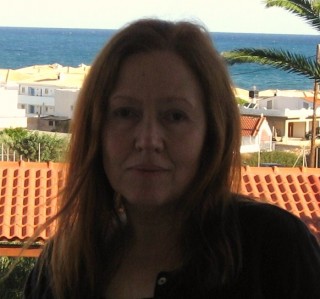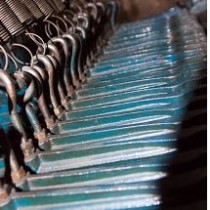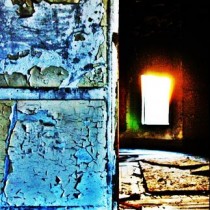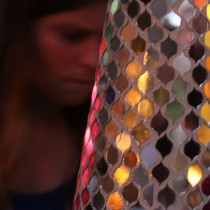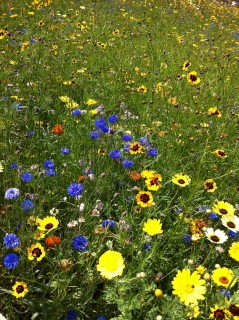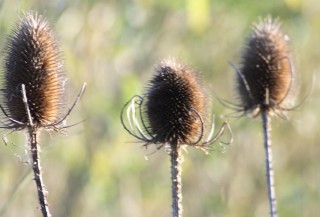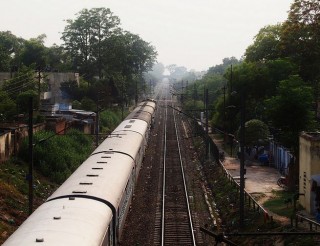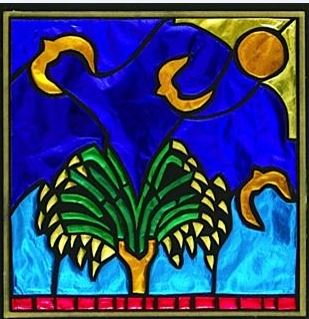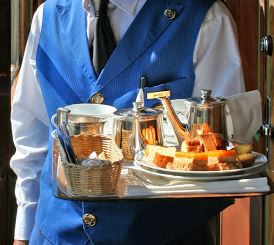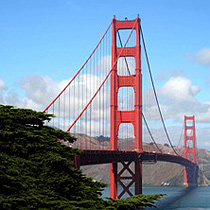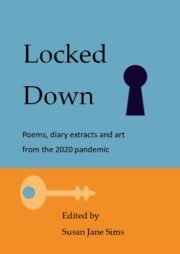• Archive of all Poetry Space showcases
The Winter Showcase was selected by Denni Turp and includes poems by Neil Leadbeater, Helen Calcutt, Christine Hollywood, Jo Waterworth, Antony Johae, Maureen Weldon, Andrew Scotson and Moira Andrew.
Photographers and artists: Chris Sims, Taz Baldwin, Steve Aukett, George Stein,Kate Blair, Susan Jane Sims and Beverley Ferguson.
Thank you to all contributors and to Denni.
Read her report on entries after the poems.
Denni has been reading and writing poetry for more years than she’d care to admit to, and last year was winner of the first Gwanwyn Festival New Writing Competition. She is a member of Lapidus and the Second Light Network of Women Poets as well as of two local writing groups where she lives in north Wales. As North Wales Field Officer for Disability Arts Cymru she is keen to encourage writers who identify as disabled or who have any long-term physical or mental health conditions to keep writing, whether in Welsh or English or any other language and—if they live in Wales—to get in touch (denni@dacymru.com or post@dacymru.com ).
Please note that copyright for all poems and artwork remains with the creators of these works.
If you want to use any please ask permission first.
————————————————————————————————————————————————————–
Lucille, you never had it so dark.
For six months you’ve been losing light
so that when we open our Books of Hours,
our calendars, our days,
those measured lists and computations
that Man divined of time,
we barely see at all.
Donne would have liked that –
how his three-person’d God
would reign in the dark
if only to dispel it later
with a bright, majestic light –
the Sunne Rising.
Neil Leadbeater
——————————————————————————————————————————————————————–
about Silence
Clear light,
gold-top of noon,
a noon lit sky.
Soft fingers lay
their soft routine
on deck and threshold
of water
the pale leaves,
the dark leaves.
They want to be touched
by a god
they want to be held
up in a strong light
and peeled out.
I want to be peeled
out. Like skin off the face
of water
I want to be un-shadowed
and lifted clean.
And the sea says
sleep to me.
And the mountain peaks,
with their blotchings of death
say sleep to me.
And the day begins
her cold slide
through the mouth of the dark.
And glitters notch
on the motor’s wheel.
Helen Calcutt
———————————————————————————————————————————————————————-
1976
Me, my sister and my dad at Shoreham Beach
The hills behind the houses
Roads fading into a shimmering heat
A white chalk track
The hills behind the houses
Alan Rogerson with his swing back fringe
A white chalk track
Lying in a field of corn
Alan Rogerson and his swing back fringe
Boys on their mopeds spinning round the streets
Lying in a field of corn
Watching insects crawl across my boyfriend’s chest
Boys on their mopeds spinning round the streets
Roads fading into a shimmering heat
Watching insects crawl across my boyfriend’s chest
Me, my sister and my dad at Shoreham beach
Christine Hollywood
——————————————————————————————————————————————————————-
Small Pleasures
Red clover, white clover, hawkbit and scabious
rosebay willowherb, purple loosestrife
meadowsweet, knapweed, cranesbill and campion
elderflower, celandine, ox-eye daisy
chamomile, ramsons, garlic mustard
dandelion, deadnettle, dogrose, primrose
periwinkle, cuckoopint, stitchwort and speedwell
woodvetch, violet, teasel – honesty
Jo Waterworth
—————————————————————————————————————————————————————-
Going Hawaiian
After the great wave hit Fukushima Daiichi and plant shut down
Tokyo found itself for hours power-starved and in the dark.
Shintaro Ishihara, city governor, called for drinks to be cooled
in home fridges, slot vendors unplugged.
Bosses of stretched businesses ordered a dimming of lights
warmed toilet seats switched off
AC levelled to near-summer heats;
advised shirts short-sleeved, trousers cotton
and open footwear at the work place
(but not ultra-casual shorts and thongs).
Accustomed to a suited dress code
office workers arrived at first with caution
pressed jacket on arm and sober tie in polythene pocket
in case called out.
Not so now in Tokyo’s commercial quarter
– on Friday they all go loud Hawaiian.
Antony Johae
—————————————————————————————————————————————————————–
Again I attempt to explain
Each time I dig this ditch,
each time primroses and violets grow
and little birds nest
in the wicker-wacky twigs and all is singing.
Now, or was it then
the ditch collapsed
filling with dusty soil,
heavy rain falling
flowers and birds – gone.
Ditch a stone-dust-goo.
And you, whom
I can not blame,
nor you, or you;
because like sunsets and dawns
which will always be the same;
like a shard or shape
of happiness or sorrow.
Tomorrow I must dig another ditch.
Maureen Weldon
——————————————————————————————————————————————————————-
Bake for One Year
It is like the barbers as the big yellow tractor guides the silver plough again and again around the field
What just a few short weeks ago was corn a metre high becomes ridged lined earth in smooth and patterned swathes
On the last hot afternoon of 2013 near Kilsby the field becomes virgin once more
Awaiting winter and spring and the renewal the earth lies waiting for the rain and the snow and then the heat like a cake a year in the baking
Andrew Scotson
—————————————————————————————————————————————————————-
Seeing Bede in the Port of Tyne
“This stop is Bede….Please mind the gap”
Fame on the railways came late for you:
another piece of irreverence
from an ill-tutored age.
Now you are part of a branch line
travelling out from the walled city
with frequent stops in between
-a name announced like all the rest –
Felling | Hebburn | Jarrow | Bede
telling | heaven’s | hallowed | creed
to a people who remember
the greatness of the past:
the building of a fleet of vessels
shipyards that used to be
their consecrated bread.
Neil Leadbeater
———————————————————————————————————————————————————————-
Kamishibai
The storyteller comes to the village on his bike.
He has taken a small platform off the back,
story cards and big pictures. The sound of his clappers
wakes the village up from its stillness.
The children come out eager for another episode;
they crowd around the storyteller who sells them sweets;
those that buy the most may sit closest
to hear his tales. He tells them in
pictures, gestures and voices on a set up stage
about Peach Boy and The One Who Drew Cats.
He’ll not end till at turning point
when ogre has spit Little One-Inch out
he’s palmed these sweet kids in his truths
and they – alert for the rest – come back
to follow the story to its resolution
with Little-Inch restored to marriageable size.
Then came TV in post-war times to Japanese villages;
no bike now, no sound of clappers, nor street stories,
but soap serials beamed from far places
to children – PC sitters, CD listeners, DVD watchers,
Xbox players, Twitter chatterers, and cell-phone cyborgs
– indoors.
Antony Johae
——————————————————————————————————————————————————————
Unholy joy
I watched the anonymous child.
He looked like a Henry to me
with his long grasshopper legs,
his sleek hair, gleaming purple
in the rain, like a starling’s wing.
He looked round warily, hesitated,
studied the wet pavement for
the deepest dirtiest puddles. Then
he jumped, knees-up, in a concentration
of splashing, wallowing in water.
A grey sky leaked grey rain
into grey gushing gutters.
Up and down, up and down,
in and out of seductive puddles
went his assiduous legs.
The Henry-child wore a dark
anorak. His absurd short socks
of a luminous pink made
the only colour moving
in a leaden afternoon.
Abruptly he stopped, trailed
his soggy socks and sandals home,
the small adventure over.
I drove away, half-envious,
into numbing consuming rain.
Moira Andrew
———————————————————————————————————————————————————————
I was so excited to have all these new poems to read appearing in my Inbox, and first of all would like to say a very big thank you to all of the poets who were so generous in sharing their work with me for the Poetry Space Winter Showcase. Sadly, as you know, there is space (no pun intended!) for only ten to be selected, and my comments on those I have chosen are necessarily brief and appear in no particular order, but I very much enjoyed reading all of the poems submitted so thank you all again.
A Nocturnal for St Lucy’s Day by Neil Leadbeater along with his Seeing Bede in the Port of Tyne were made memorable for me by the strong sense of a speaking voice which I could almost hear in my head, as well as by originality of thought and idea. Helen Calcutt’s about Silence has some unusual word juxtapositions that are very effective, with an almost sinister ending that leaves the reader wondering. In her poem 1976, Christine Hollywood plays with the pantoum form, and this allows her to string repeated images together in a way that evocatively suggests a remembered youthful summer. Jo Waterworth’s Small Pleasures may be only a small poem, and it really needs reading aloud to capture the rhythm produced by the ordering of the plant names, and then, at the end, the sudden hyphen followed by honesty, demands more thought than the reader might have been expecting: very clever. Antony Johae also has two poems in this showcase: Going Hawaiian, for its lovely rhythm, its absolutely super story and very strong visual sense, and its wonderfully humorous and totally unexpected ending; and Kamishibai, another very vividly descriptive poem which draws in the reader (and beautifully explains the word). Maureen Weldon’s Again I Attempt To Explain is a very different kind of poem, and one I had to keep rereading—and enjoying every time!—is deceptively simple, but has a lot to say as well as some magical turns of phrase such as the wicker-wacky twigs and all is singing. I was unable to find a title for the poem I selected by Andrew Scotson, but it begins It is like the barbers with a very striking description of a field being ploughed, and unusually long lines to produce a very powerful short poem with quite exceptional images at both the beginning and the ending. And finally, Moira Andrew’s poem, Unholy joy, which also has some striking and unusual images to describe this anonymous child who she makes so much more real by suggesting that He looked like a Henry as she shares her unspoken sense of knowing—as we probably all do—the sheer naughty delight of splashing through puddles when we were young, but then is caught, as she drives away into numbing consuming rain, switching the mood for the reader.
Denni Turp
———————————————————————————————————————————————————————

